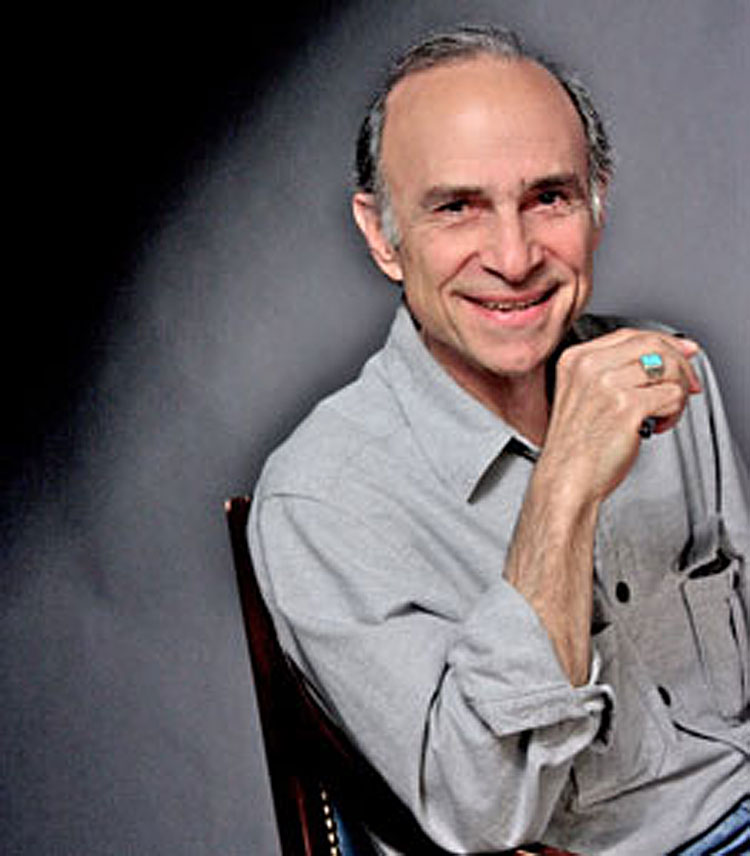By Jessica Johnson

A regular contributor to local media, Kessler has written ten books of poetry, sixteen books of literary translation, three essay collections and a novel. As a founding editor and publisher of Alcatraz, an international literary journal; the Sun, a local weekly that closed after the ’89 earthquake; and The Redwood Coast Review out of Mendocino, Kessler has cemented himself as a founding member of the local literary scene.
I recently met Stephen for coffee and pie at a sidewalk cafe downtown, where he shared stories and insights from a lifetime of writing. I could easily have written several pages about our time together. My hope is that I did him justice, and that his deep insight into the life of a poet comes through in this brief column.
•••
How long have you lived in SC? What brought you here?
I arrived in the early 70s on a fellowship to earn my doctorate in Literature at UCSC.
How has living here influenced your creativity?
In the 70s and 80s I found connections with people who were interested in the same kinds of things I was – whether it was newspaper or radio, poetry or criticism – there were always interesting people to talk to. There was a sense of mutual respect and friendly rivalry. There was a sense of creative energy.
When did you write your first poem?
I started writing in verse when I was 6 or 7.
Are there other creatives in your family?
The more poetry I read – though I didn’t necessarily understand it – the more I came to appreciate the formal qualities of the poem on the page. I liked the way it looked, I liked the blocks of type, I liked the way the rhymes landed in the same places. To me, it was a little universe on the page that I found very absorbing, even though I didn’t think of myself as especially literary or in search of a serious philosophical understanding of life. It was just the fun of playing with the language [that I enjoyed].
When did you first refer to yourself as a poet?
Like most young writers, it takes a while to develop the confidence to call yourself a writer. The great thing is that everyone can do it, but not everyone has the feeling of necessity. In terms of feeling of the necessity of writing, I had that from very early on. Both from a child’s point of view as a fun thing to do; and as a young man, something that seemed necessary for my soul.
It took me a while to convince myself that I could actually do this. But in terms of the draw, the compulsion, there was just never any escape. I can’t help writing…it’s the way I process my experience and make – if not sense of it – at least shape it in some way that I can understand it.
What is your writing routine?
I have certain habits, but I don’t have a regular routine. It depends on what I am working on. If I’m translating a book or working on a novel – there’s a much more rigorous agenda because it takes sustained momentum to finish the project. In those cases, I might have a certain time when I will try to be at my desk. But I carry a notebook in my pocket and I can work anywhere. I actually find distraction stimulating.
Do you have dry spells? What do you do when you have them?
I can go months without writing a poem. I do just write out of pleasure and am constantly exercising my writing, but I don’t worry if I don’t feel like writing. The only kind of poem that’s going to count is the one that comes from necessity, not obligation. 30 or 40 years ago it might have worried me, but [poetry] is an organic part of my life.
What do you do when you are not writing?
Go grocery shopping, run errands, take care of business. I’m very practical. My default recreation would be going to a movie or meeting a friend for coffee.
What has been the most surprising thing about choosing the artist’s life?
That I even did it…I’ve done more than I ever thought possible. It’s been a journey that I am glad to have taken.
Do ideas come to you in a flash or do they percolate?
Not so much a flash, but I get – usually it’s a phrase – and I don’t know where it’s going or what to make of it. The only way to find out is by letting that line unravel.
Who are your creative models, and why?
There are a lot of people I admire, a lot. There are writers I admire and artists of varying kinds, but I admire the integrity of people who have the courage to do their own thing. And even after success, they have the courage to change, to try new things that maybe their fans won’t like. Bob Dylan is an amazing example of someone like that who has completely followed his own path.
What is the best advice you have ever been given about being a poet?
The poet’s poet and true wild man, Robert Duncan, once told me three things: 1) Trust your own voice. 2) Give yourself permission to be an idiot. 3) Poets aren’t factories.
•••
Learn more about Stephen’s work at www.stephenkessler.com.
Raised in Aptos, Jessica Johnson is a freelance writer and blogger dedicated to inspiring others to live brave, creative lives. Learn more at www.jessicajanisjohnson.com. Email your questions, comments and creative suggestions to her at jessica@vinegarandvanilla.com.